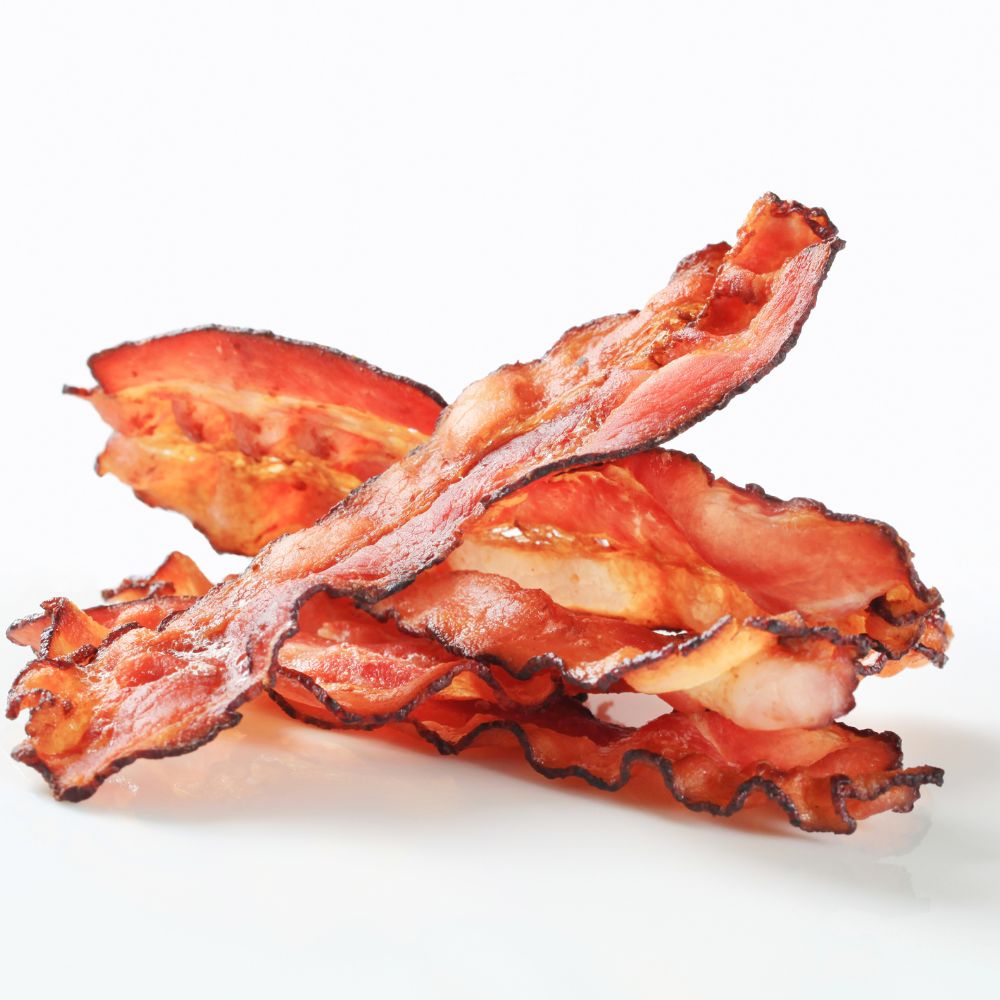Bacon is a beloved food for many, often celebrated for its rich flavor and crispy texture. However, when it comes to muscle building, the question arises: is bacon a beneficial addition to your diet? This article explores the nutritional aspects of bacon, its potential role in muscle building, and how to enjoy it in a balanced way.
Nutritional Profile of Bacon
Bacon, typically made from pork belly, is primarily known for its high fat and protein content. Here’s a breakdown of its nutritional components:
- Protein: Bacon is a source of protein, containing about 12-15 grams per 3-ounce serving. Protein is essential for muscle repair and growth, making it an important nutrient for anyone looking to build muscle.
- Fats: Bacon is high in saturated fats. While some fat is necessary for hormone production and overall health, excessive saturated fat intake can lead to health issues, including heart disease.
- Vitamins and Minerals: Bacon provides several vitamins and minerals, including:
- B Vitamins: Essential for energy metabolism, B vitamins play a crucial role in converting food into fuel for workouts.
- Selenium: This mineral supports immune function and may help protect against oxidative stress.
- Sodium: Bacon is typically high in sodium due to the curing process. High sodium intake can lead to increased blood pressure and other health concerns, especially when consumed in excess.
Benefits of Bacon for Muscle Building
- Protein Source: The protein in bacon can contribute to your daily intake, helping with muscle repair and growth, especially post-workout. However, it’s important to balance this with other protein sources that are lower in fat.
- Flavor Enhancer: Bacon can make healthy meals more enjoyable, which may encourage you to stick to a balanced diet. This can be beneficial for overall dietary adherence, helping you meet your fitness goals.
- Caloric Density: The high fat content in bacon makes it calorie-dense. For those looking to gain weight or muscle mass, this can be advantageous when consumed in moderation as part of a calorie surplus.
Considerations and Moderation
While bacon has some benefits, it’s essential to approach it with caution:
- Saturated Fat: Excessive intake of saturated fat can lead to heart disease and other health problems. It’s advisable to limit bacon consumption to occasional treats rather than daily staples.
- Balanced Diet: Relying solely on bacon for protein is not advisable. Incorporate a variety of protein sources, such as lean meats, fish, eggs, dairy, legumes, and nuts, to ensure a well-rounded diet.
- Sodium Intake: Be mindful of your overall sodium consumption. If you enjoy bacon, balance it with low-sodium foods throughout the day.
How to Incorporate Bacon Wisely
If you decide to include bacon in your muscle-building diet, here are some tips:
- Use Sparingly: Consider using bacon as a flavoring agent rather than the main protein source. A small amount can enhance salads, omelets, or vegetable dishes.
- Pair with Nutrient-Dense Foods: Combine bacon with healthier foods, such as vegetables, whole grains, and lean proteins, to create a balanced meal.
- Choose Quality: Opt for high-quality, nitrate-free bacon when possible, as it may be a healthier choice compared to processed varieties.
Conclusion
Bacon can be included in a muscle-building diet, but it should be consumed in moderation. Its protein content can support muscle repair and growth, but the high saturated fat and sodium levels warrant caution. For optimal muscle building, focus on a balanced diet that includes a variety of protein sources, while enjoying bacon as an occasional treat. Always consider your overall dietary habits and consult a healthcare professional or nutritionist if you have specific dietary concerns.

